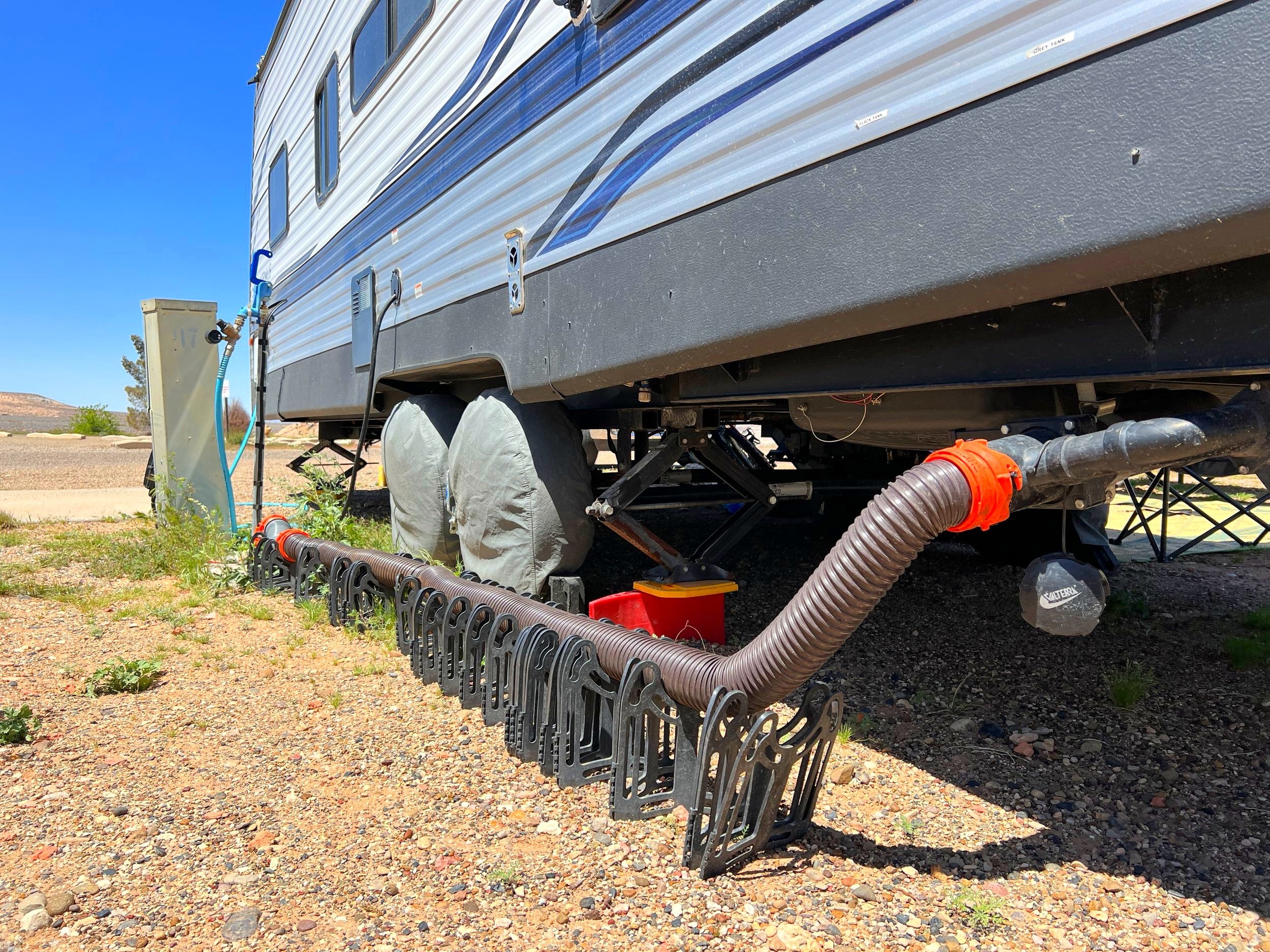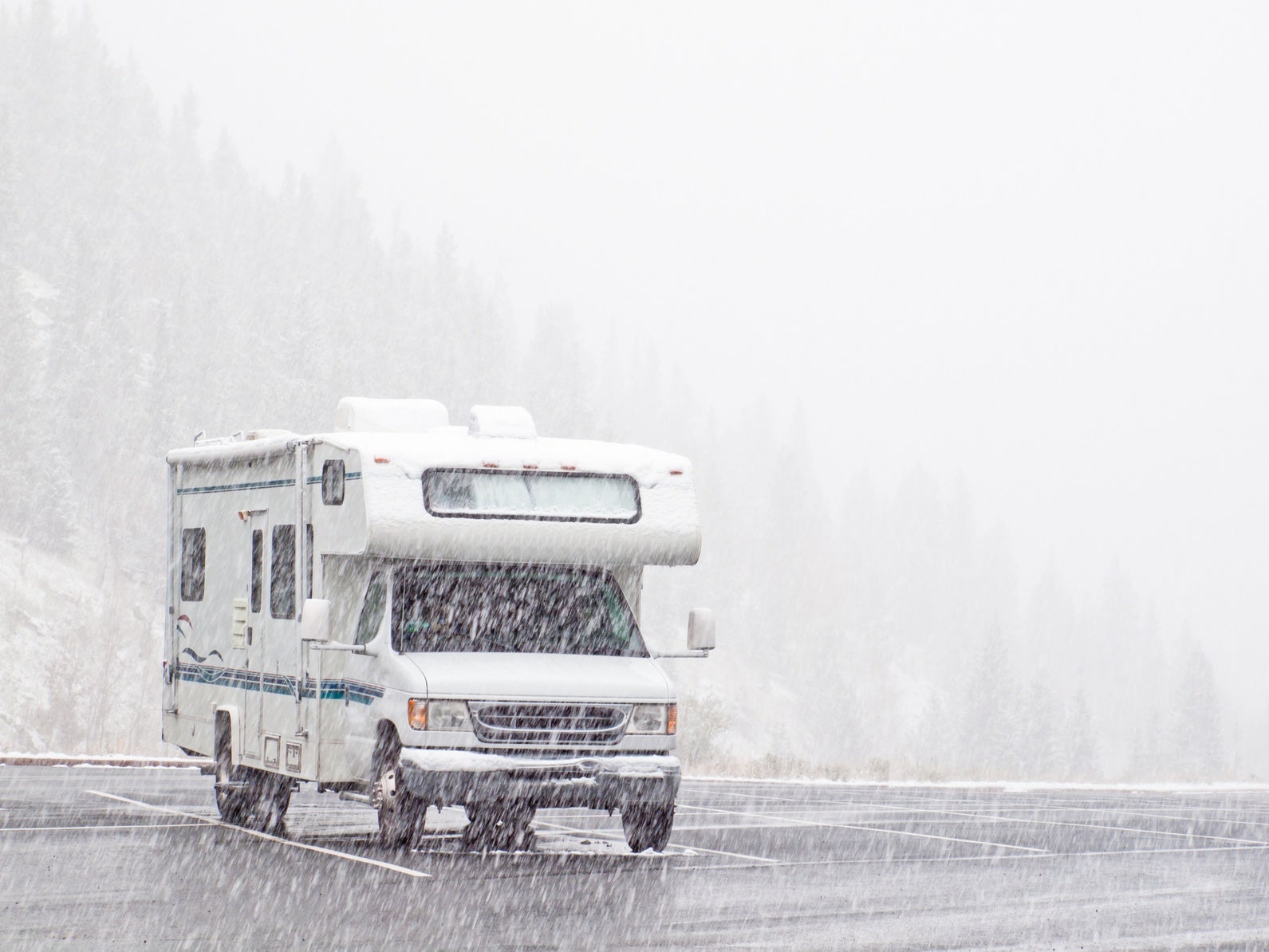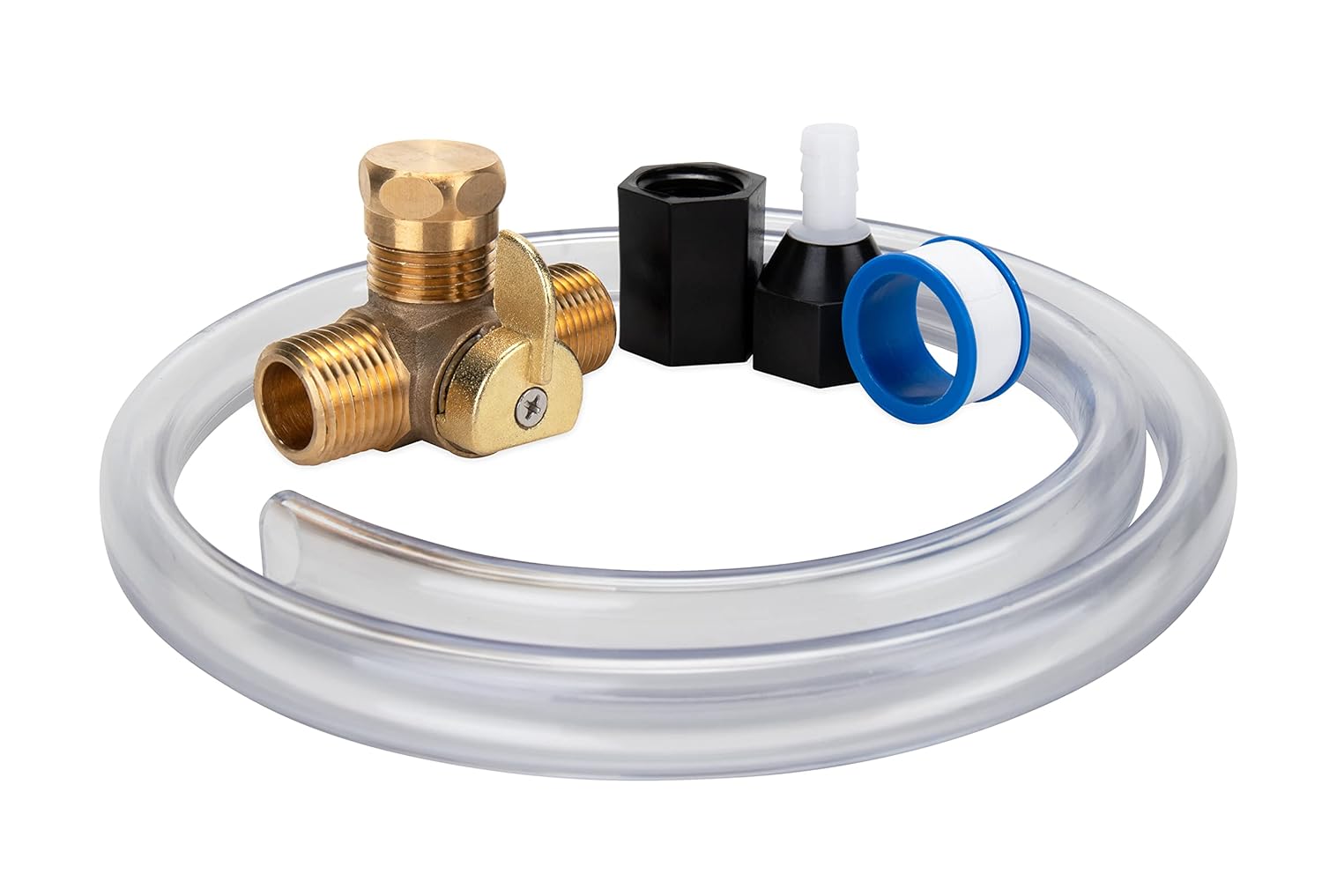Camping with your travel trailer can be a great escape, but freezing pipes can quickly turn your adventure into a chilly nightmare. Imagine waking up to no running water or worse—burst pipes that cause costly damage.
You don’t want that to happen. You’ll discover simple and effective ways to keep your travel trailer pipes from freezing, so you stay warm, comfortable, and worry-free no matter how cold it gets outside. Keep reading to protect your home on wheels and enjoy every moment of your trip.

Credit: deandrandmiketravel.com
Causes Of Pipe Freezing
Travel trailer pipes freeze when water inside them turns to ice. This happens mostly in cold weather. Ice can block water flow and damage pipes.
Knowing what causes pipes to freeze helps campers protect their trailers. Two main causes are temperature and weak pipe spots.
Temperature Impact
Cold air lowers pipe temperature. If it drops below 32°F (0°C), water inside can freeze. Freezing water expands and breaks pipes.
Wind makes pipes colder by blowing away warm air. Pipes exposed to wind freeze faster than those in sheltered spots.
- Cold temperatures below freezing cause ice
- Wind removes warmth around pipes
- Long cold nights increase freezing risk
- Sunlight helps keep pipes warm during day
Common Vulnerable Areas
Some parts of the trailer pipes freeze more easily. These spots have less insulation or more exposure to cold air.
Areas under the trailer and near outside walls often get cold. Pipes near doors or vents also face freezing risks.
- Exposed pipes under the trailer
- Pipes near outside walls and windows
- Connections and joints with less insulation
- Water heater lines and tanks
Insulation Techniques
Keeping travel trailer pipes from freezing is important for cold weather camping. Good insulation helps prevent pipe damage and water loss.
This guide covers two common insulation methods: pipe wraps and foam, and using heat tape. Both protect pipes in different ways.
Pipe Wraps And Foam
Pipe wraps are soft, flexible materials you wrap around pipes. Foam insulation fits tightly and blocks cold air.
These materials reduce heat loss from pipes. They keep water flowing and stop freezing during cold nights.
- Use foam pipe sleeves for thick, snug coverage
- Wrap pipes with fiberglass or foam pipe wrap
- Seal seams with waterproof tape to block moisture
- Cover exposed pipes under your trailer
- Check insulation regularly for damage or gaps
Using Heat Tape
Heat tape is an electric wire that warms pipes. It prevents ice from forming inside the pipes.
Install heat tape along the pipe’s length. Use it with insulation for best results and safety.
- Choose heat tape designed for water pipes
- Wrap tape evenly along the pipe surface
- Cover tape with foam or pipe wrap for insulation
- Plug tape into a safe power source
- Follow manufacturer instructions closely
Heating Solutions
Cold weather can freeze your travel trailer pipes. Keeping pipes warm stops damage and leaks. Using heating solutions helps campers stay safe and comfortable.
These solutions include tools that provide heat near pipes. They work well for camping in winter or cold areas.
Portable Heaters
Portable heaters are small devices that provide heat inside or near your trailer. They help keep pipes warm by raising the air temperature around them.
When using portable heaters, place them safely away from flammable materials. Use heaters designed for indoor use to avoid safety risks.
- Choose electric or propane heaters made for trailers
- Keep heaters close to pipes but not touching them
- Ensure good ventilation to prevent carbon monoxide buildup
- Monitor heaters regularly to avoid overheating
Heated Water Hoses
Heated water hoses keep water flowing by warming the hose itself. They prevent water inside from freezing during cold weather.
These hoses have built-in heating elements powered by electricity. They are easy to connect and use with your trailer’s water system.
- Plug the heated hose into a power source
- Use insulated hose covers for extra protection
- Choose the right length for your campsite setup
- Follow manufacturer instructions for safe use

Credit: acera.ca
Water Management Tips
Keeping your travel trailer pipes from freezing is important during cold camping trips. Proper water management helps protect your plumbing system. It reduces damage and keeps water flowing.
These tips focus on how to manage water in your pipes. Draining and keeping water moving can stop freezing problems.
Draining Pipes
Draining all water from your pipes is one way to prevent freezing. Empty pipes have no water to freeze and cause damage.
Drain your fresh water tank, water heater, and all water lines before cold nights. Use the drain valves and open faucets to remove water.
- Turn off the water pump and city water supply
- Open all faucets, including outside showers
- Drain the fresh water tank completely
- Drain the water heater tank after turning off power
- Use compressed air to blow out remaining water in lines
Keeping Water Flowing
Water that keeps moving is less likely to freeze inside pipes. Letting a small stream flow helps prevent ice buildup.
Keep a faucet open slightly to allow slow water flow during freezing nights. This keeps water moving and lowers freezing risk.
- Open a faucet just enough to drip water
- Choose a faucet far from the water heater
- Use heated water hoses or pipe insulation
- Run the water pump regularly if using tanks
- Check pipes for cold spots and add heat tape if needed
Camping Site Selection
Choosing the right camping site helps keep your travel trailer pipes from freezing. Some sites offer better protection from cold weather.
Consider the location carefully to reduce pipe freezing risks during your trip.
Avoiding Exposure
Pick a camping spot shielded from strong winds. Wind can cause pipes to freeze faster.
Look for natural barriers like trees or hills to block cold air.
- Set up near dense trees or shrubs
- Avoid open, flat areas with no cover
- Stay away from exposed hilltops or ridges
Utilizing Sunlight
Choose a site that gets good sunlight during the day. Sunlight warms your trailer and pipes naturally.
Park your trailer so the sun hits the side with the pipes. This helps keep them warmer.
- Face the south or southwest for best sun exposure
- Clear away any shade from trees or structures
- Use reflective materials to boost sunlight on pipes
Preventive Maintenance
Keeping your travel trailer pipes from freezing is important during cold weather camping. Preventive maintenance helps avoid costly repairs and keeps water flowing.
Simple steps taken before cold weather can protect your pipes and improve your camping experience.
Regular Inspections
Check your pipes often for cracks, leaks, or weak spots. Regular inspections help find problems early before they get worse.
Inspect areas where pipes run outside or under the trailer. Look for signs of frost or ice buildup as well.
- Look for leaks or water stains on pipes
- Feel pipes for cold spots or cracks
- Check pipe insulation for damage
- Examine areas where pipes connect
Sealing Gaps And Cracks
Seal any gaps or cracks around pipes to stop cold air from reaching them. Cold drafts can freeze water inside the pipes quickly.
Use weatherproof caulk or foam sealant to fill spaces. Pay close attention to where pipes enter or leave the trailer.
- Seal gaps around pipe entry points
- Use foam tape for small cracks
- Apply silicone caulk for larger openings
- Check seals regularly and reapply if needed

Credit: www.happycampers.store
Frequently Asked Questions
How Can I Prevent Travel Trailer Pipes From Freezing?
Insulate your pipes using foam sleeves or heat tape. Keep the water flowing to avoid freezing. Use heated water tanks and drain pipes when not in use.
What Materials Are Best For Insulating Trailer Pipes?
Use foam pipe insulation or heat-resistant tape. These materials provide excellent protection from cold temperatures. Proper insulation helps maintain water flow and prevents pipe damage.
Is It Necessary To Use A Heated Water Hose?
Yes, a heated water hose prevents freezing during cold weather. It maintains water flow and protects pipes from damage. Heated hoses are essential for winter camping in freezing conditions.
Can I Use Rv Antifreeze In My Pipes Safely?
Yes, RV antifreeze is safe for winterizing plumbing systems. Use only non-toxic, propylene glycol-based antifreeze. Follow manufacturer instructions to avoid damage and ensure safety.
Conclusion
Keeping your travel trailer pipes from freezing is essential. It ensures a smooth camping experience. Simple steps like insulating pipes help a lot. Using heat tape can also prevent freezing. Always check the weather before you travel. Store your trailer in a warm place if possible.
Drain the water system when not in use. These precautions can save you from unwanted trouble. Enjoy camping without worrying about frozen pipes. Stay prepared and stay warm. Happy camping!